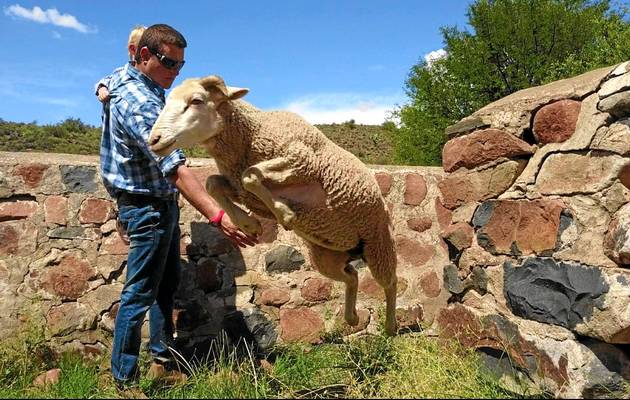If you count sheep to fall asleep, you can now do it organically.

Willie and Sonja Esterhuizen, of Britstown, in the Karoo, are South Africa’s first internationally certified organic sheep farmers.
The couple took a year converting their thousands of merinos into a certified organic flock, meaning no growth hormones or routine antibiotics are used and the sheep eat material not treated with herbicides or pesticides.
“Their health and wellbeing are top priority,” said Willie, whose family has farmed Elandsfontein for three generations.
The abattoir they use is certified organic, and the meat is sold at a certified butchery in Durbanville, Cape Town.
Elandsfontein’s certification means that its meat is produced to the organic standards of the EU and countries including Australia and Turkey, according to Marianna Smith of Ecocert Southern Africa.
Esterhuizen said organic food was a “growing niche market” and provided export opportunities. Going organic did not increase productivity, but meant the farm could charge more for its meat.
Stellenbosch University agricultural students helped make the farm organic.
“We still need to convert a small portion of our farming operations to 100% organic standards, but because of the valuable relationships with researchers in sustainable agriculture who are studying our endeavours we were able to get international certification,” said Esterhuizen.
The next step is to investigate the production of organic wool and lanolin, a wool by-product used in cosmetics.
“There is not yet a market for organic wool in South Africa, because it is so expensive to wash and process it,” said Esterhuizen.
Stellenbosch student Sarah Erasmus got a PhD in food science this month for research showing Karoo lamb’s unique taste comes from a diet of fragrant indigenous bushes.
Emily Rizzo is on an SIT Study Abroad programme. She wrote this story in association with Round Earth Media



